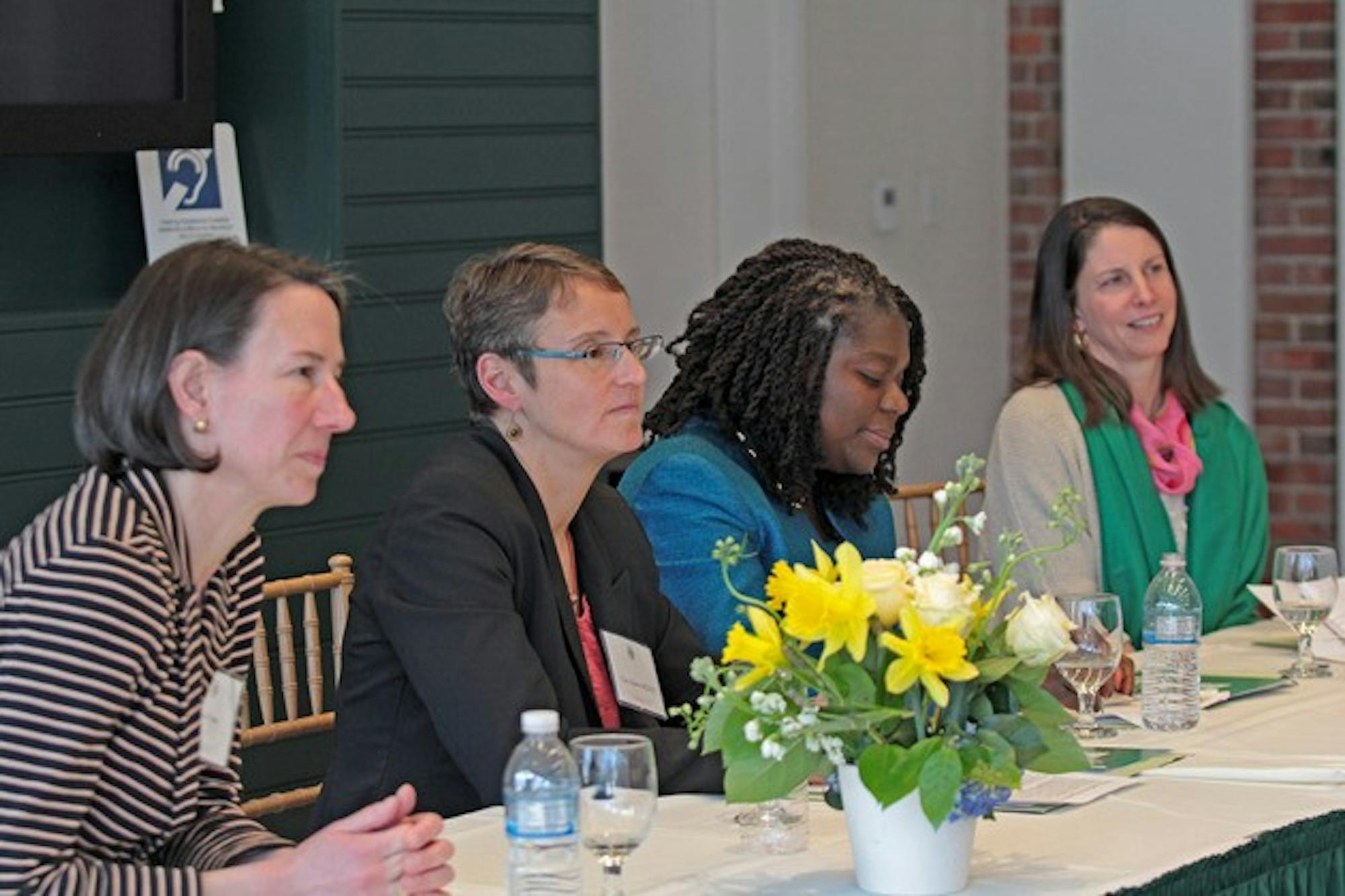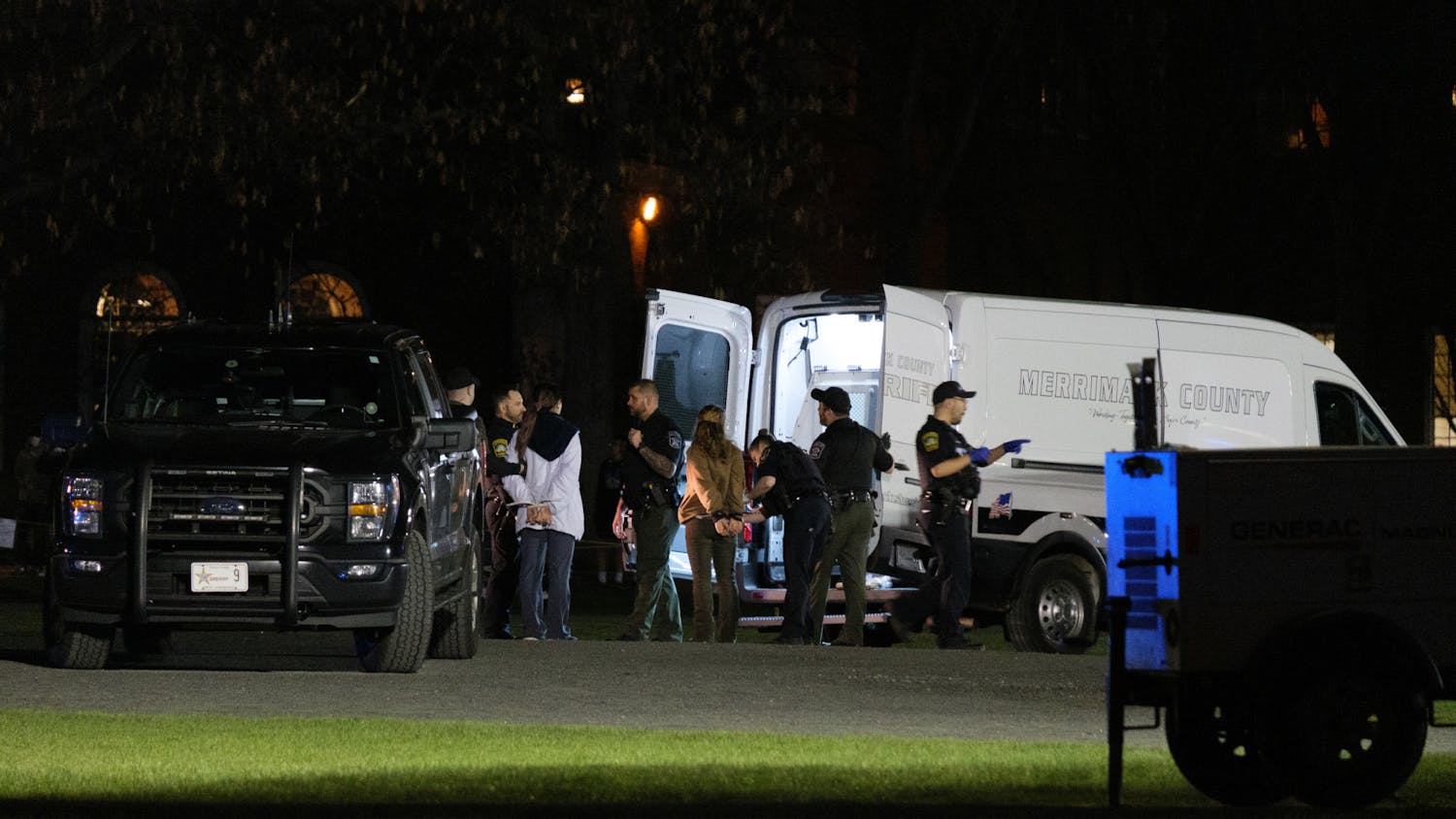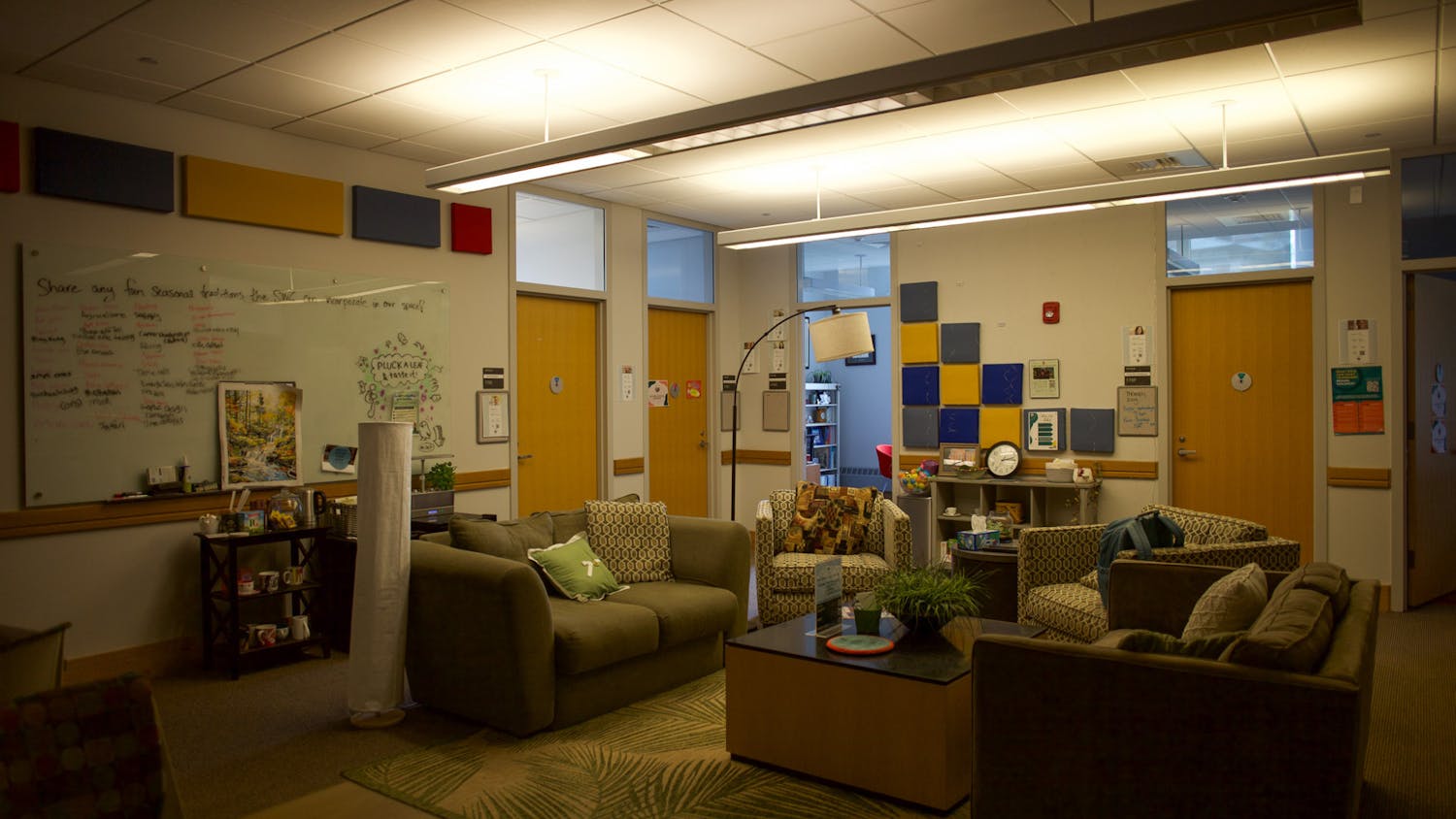Greenways featured 17 panel discussions, keynote speeches and a screening of "Makers," a documentary film about American female leaders produced by Pamela Wagner '81.
The event was largely successful at demonstrating the College's growth and progress since it began admitting women in 1972, said Martha Beattie '76, vice president for alumni relations.
"Kemeny would be very, very proud of what his historic words did and what kind of accomplishments have been achieved at this college," Beattie said. "It's a demonstration of how remarkable Dartmouth really is."
Interim College President Carol Folt said in an interview that Dartmouth has "entered the modern era with coeducation." She cited the coinciding 40th anniversaries of Title IX, the Native American studies program and the Black Alumni at Dartmouth Association as evidence of Dartmouth's commitment to providing equal education to all students.
Folt attributes the College's progress to the integration of its need-blind admissions policy and expansion of mentorship programs to promote female and minority participation in science and math-related majors, Folt said. Dartmouth has also increased the number of female and minority faculty members, a change Folt oversaw directly as Dean of the Faculty.
"Greenways is about coeducation and about gender, but it's not just about women," Folt said. "It's progress for men and women, populations of different races and socioeconomic statuses, all these things that have changed in higher education."
Panel Discussions
Greenways opened with a reception hosted by Folt and Beattie on Friday evening. Saturday's events kicked off with an address from Richie, who discussed her position as WNBA president and her career since Dartmouth. The keynote was followed by panel discussions, ranging from industry-specific career advice to work and family balance.
The panels, held in two sessions on Saturday, with eight in the morning and eight in the afternoon, were broken up by a luncheon and keynote address by Dratch. The day's events ended with the screening of "Makers" and an address by Folt.
The "Beyond the Glass Ceiling" panel featured General Electric Canada president and CEO Elyse Allan '79 Tu'84 and Wolfensohn Fund Management managing director and College trustee Diana Taylor '77.
Allan said that while the College and society have made great strides in gender equity, women must be vigilant in finding the balance between their personal and career aspirations.
"Balance is a very self-defined thing, but it starts with self-awareness," she said.
At another panel, "Dynamic Duos: Dartmouth Dads and Daughters," four pairs of fathers and daughters talked about their life as students at Dartmouth. Panelists ranged from alumni who graduated in the 1970s to a member of the Class of 2015.
Panel moderator Lynne Gaudet '81 asked the fathers on the panel whether they would want their daughters to attend the same Dartmouth as they did, and if they would prefer to attend it as it is today.
All four fathers said that while they appreciated their time at the College, Dartmouth today is a better institution.
Students interviewed said they enjoyed the weekend's events and speaking with Dartmouth alumni.
Molly Crowe '15, a speaker on the Dartmouth Dads and Daughters panel, said that hearing from a range of alumni helped contextualize how much Dartmouth has changed in the last 40 years.
"I don't think many students on campus right now can truly appreciate some of the transitions that Dartmouth has gone through," Crowe said. "We have much more work to do in terms of gender discrepancies, but it's pretty amazing considering where Dartmouth started from."
Thea Stutsman '13, who attended the "Telling Our Stories" and "In the Spotlight" panels, said she was interested in hearing about "non-traditional paths" after Dartmouth, especially in the media and arts and entertainment industries. Stutsman said she was most impressed with the alumnae's willingness to connect with current students, and gained the most from informal conversations she had with attendees after the panels.
Saida Makhmudzade '14, who is interested in improvisational comedy, attended Dratch's keynote address as well as an afternoon panel with Dratch.
Before the weekend, Makhmudzade had not been aware of the amount of discrimination women faced in the early classes of coeducation, during which men rated women that walked down the aisle of the former Thayer dining hall.
Makhmudzade said she appreciated speaking with alumnae about how the campus has changed, but wished organizers had better advertised the weekend.
"There were maybe one or two campus-wide blitzes sent out," Makhmudzade said. "I had to explain to a lot of my friends what it was."
Other students interviewed said that they were confused about Greenway's registration policy. Although the panel discussions were open to students who did not register, the alumni relations website stated that registration had "closed" before the weekend began.
Reflecting on the Weekend
Rebecca Todd '84 said she was impressed by the diverse perspectives she witnessed over the weekend. She particularly enjoyed a panel titled "The Road Less Traveled," which featured National September 11 Memorial and Museum chief curator and collections director Jan Ramirez '73 and South Africa's Enkosini Conservation Trust founder and trustee L. Kelcey Grimm '96.
"There were so many bright, thoughtful, honest women talking about what moves them, what inspires them," Todd said. "It reinvigorates our own passions and helps us to appreciates the work that others are doing."
Emily Bakemeier '82 said she enjoyed the impromptu conversations that she had with student attendees at panel discussions. She wished that there had been more time to connect with students and form ongoing relationships, she said.
Jenny Hauge '82 said that students missed opportunities to form these relationships because of the weekend's limited publicity.
"I think this is a message for the administration, that bringing women alumnae back to campus is a big opportunity for networking," Hague said. "I was thrilled to see the students who were here, but sorry that there were not more of them."
Anne McNay '80 learned that Dartmouth had to move to coeducation in order to survive as an institution.
I'd never heard it put that way, and I really liked it," she said. "Female students were not second-class citizens but vital to be competitive and attract future students and faculty to Dartmouth."
Meg Morrow Clayton '79 said events like Greenways affirm her belief that the Dartmouth experience extends beyond the four years on campus.
She said the opportunity to share experiences with students and alumni are part of what makes being a member of the community a lifelong experience.




